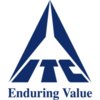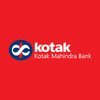Finance Executive
300+ Finance Executive Interview Questions and Answers

Asked in Xihi Technology

Q. 1. What are the core aspects in accounts receivable part 2. General account payable & account receivable
Accounts receivable involves managing outstanding invoices and payments from customers, while accounts payable involves managing payments to suppliers and vendors.
Accounts receivable involves invoicing customers for goods or services provided
Accounts receivable also includes tracking and following up on outstanding payments from customers
Accounts payable involves managing payments to suppliers and vendors for goods or services received
Accounts payable also includes ensuring t...read more

Asked in ITC Limited Foods Division

Q. Expectations and How you can add value
I expect to bring my expertise in financial analysis and strategy to drive growth and profitability for the company.
I have a track record of identifying cost-saving opportunities and implementing effective financial controls.
I am skilled in financial modeling and forecasting, which can help the company make informed decisions about investments and expansion.
I am also experienced in developing and executing strategic plans that align with the company's goals and objectives.
By ...read more

Asked in IDBI Intech Limited

Q. How do you recognize revenue as per Ind AS 115?
Revenue recognition as per IndAS 115
Identify the contract with the customer
Identify the performance obligations in the contract
Determine the transaction price
Allocate the transaction price to the performance obligations
Recognize revenue when (or as) the entity satisfies a performance obligation

Asked in Zoho

Q. How do you reconcile GSTR 2B with books of accounts?
Reconciliation between GSTR 2B and books of accounts
Compare the data in GSTR 2B with the data in the books of accounts
Identify and rectify any discrepancies
Ensure that all invoices and transactions are accounted for in both GSTR 2B and books of accounts
Reconcile on a regular basis to avoid any errors or penalties
Use software tools to simplify the process

Asked in Walkaroo International

Q. How will you verify and process invoice accounting?
I will ensure accurate invoice verification and processing through systematic checks and adherence to accounting principles.
Review invoice details against purchase orders to confirm accuracy.
Verify receipt of goods/services before processing payment.
Check for proper authorization signatures on invoices.
Utilize accounting software to track and manage invoices efficiently.
Implement a three-way match process: invoice, purchase order, and receipt.

Asked in Kotak Mahindra Bank

Q. If a creditor balance shows a debit balance exceeding the credit balance, what is the impact on the balance sheet?
A debit balance in creditor accounts indicates overpayments, affecting liabilities and cash flow on the balance sheet.
A debit balance in creditor accounts suggests that the company has overpaid its suppliers.
This overpayment will appear as a current asset on the balance sheet, reducing total liabilities.
For example, if a company owes $10,000 but has a $2,000 debit balance, its net liability is effectively $8,000.
This situation can impact cash flow, as excess cash is tied up i...read more
Finance Executive Jobs




Asked in Kotak Mahindra Bank

Q. If bank balances are favorable in the cash book, what is the impact when a deposited check is dishonored or returned?
Dishonored cheques impact cash book balances, leading to discrepancies and potential liquidity issues.
1. Cash Book Overstatement: A favorable bank balance in the cash book may mislead management about available funds.
2. Reversal of Deposits: When a cheque is returned, the previously recorded deposit must be reversed, reducing the cash book balance.
3. Impact on Liquidity: This can create liquidity issues, as the business may have relied on those funds for operations or payment...read more

Q. What do you know about Motherson?
Motherson is a global automotive supplier with a focus on electrical distribution systems, automotive rearview mirrors, and polymer processing.
Founded in 1975 in India
Operates in 41 countries
Employs over 135,000 people
Supplies to major automotive companies such as BMW, Ford, and Volkswagen
Acquired PKC Group, a Finnish wiring harness manufacturer, in 2017
Share interview questions and help millions of jobseekers 🌟


Asked in Jss Pro Services

Q. What is the journal entry for purchases?
The journal entry for purchases involves debiting the Purchases account and crediting the Accounts Payable or Cash account.
Debit the Purchases account to record the cost of goods purchased
Credit the Accounts Payable account if the purchase is made on credit
Credit the Cash account if the purchase is made in cash
If applicable, include additional accounts such as Sales Tax Payable or Discounts
Example: Debit Purchases $10,000, Credit Accounts Payable $10,000
Asked in Simpliance Technologies

Q. What is a financial account?
The financial account is a component of a country's balance of payments that records transactions involving financial assets and liabilities.
It tracks the flow of funds between a country and the rest of the world.
It includes transactions such as foreign direct investment, portfolio investment, and loans.
The financial account is divided into subcategories like direct investment, portfolio investment, and other investment.
Direct investment involves the acquisition of a controll...read more

Asked in FIS

Q. Why do you want to work in Accounting?
I have a passion for numbers and problem-solving, and I believe accounting is the foundation of finance.
I enjoy working with numbers and analyzing financial data.
I have strong attention to detail and organizational skills, which are essential in accounting.
I believe accounting is the language of business and provides a solid foundation for a career in finance.
I am interested in helping businesses make informed financial decisions and improve their overall performance.

Q. What is the process for analyzing financial statements?
Analyzing financial statements involves evaluating a company's financial health through various metrics and ratios.
1. Gather financial statements: Collect the balance sheet, income statement, and cash flow statement.
2. Perform ratio analysis: Calculate key ratios like liquidity (current ratio), profitability (net profit margin), and solvency (debt-to-equity).
3. Trend analysis: Compare financial data over multiple periods to identify trends, such as revenue growth or expense m...read more

Asked in Manappuram Finance

Q. What are simple and compound interest?
Simple interest is calculated on the principal amount only, while compound interest is calculated on both the principal and the accumulated interest.
Simple interest is a fixed percentage of the principal amount.
Compound interest is calculated on the principal and the accumulated interest.
Simple interest is used for short-term loans and investments.
Compound interest is used for long-term loans and investments.
Examples of simple interest include savings accounts and short-term ...read more

Asked in HDFC Bank

Q. What is the full meaning of KYC?
KYC stands for Know Your Customer.
KYC is a process used by financial institutions to verify the identity of their customers.
It involves collecting and verifying customer information to prevent fraud, money laundering, and other illegal activities.
KYC requirements may include providing identification documents, proof of address, and other relevant information.
Financial institutions are legally obligated to perform KYC procedures to ensure compliance with regulations.
KYC helps ...read more

Asked in AGS Transact Technologies

Q. What are the TDS (Tax Deducted at Source) slabs?
TDS slabs are tax rates at which tax is deducted at source based on income levels.
TDS slabs vary based on the type of income and the individual's age
For example, TDS on salary income ranges from 0% to 30% depending on income levels
TDS on interest income is usually deducted at 10% for individuals

Asked in IBM

Q. What are your future planning goals?
My goal for future planning is to continuously learn and grow in my career while maintaining a healthy work-life balance.
Continuously improve my skills and knowledge through training and development opportunities
Set achievable career goals and work towards them
Prioritize self-care and maintain a healthy work-life balance
Stay up-to-date with industry trends and advancements
Build strong professional relationships and network
Contribute to the success of my organization
Asked in Kunal Hydraulics & Spares

Q. what is sales and purchase invoice, what do you mean by bank statement ,AR, AP
Sales and purchase invoices are documents used in financial transactions, while bank statements show transactions with a bank. AR stands for accounts receivable and AP stands for accounts payable.
Sales and purchase invoices are documents used to record sales and purchases in a business.
Bank statements show all transactions made with a bank account, including deposits, withdrawals, and fees.
AR (accounts receivable) represents money owed to a company by its customers for goods ...read more

Asked in Datamatics Global Services

Q. What is two-way matching and three-way matching?
Two way matching compares invoice and purchase order, while three way matching adds receipt of goods to the comparison.
Two way matching ensures that the invoice matches the purchase order in terms of quantity, price, and terms.
Three way matching adds the receipt of goods to the comparison to ensure that the goods have been received and match the invoice and purchase order.
Two way matching is commonly used for low-value purchases, while three way matching is used for high-valu...read more
Asked in ZedPlus Accounting and Finance

Q. What is LMI? when LMI is required?
LMI stands for Lenders Mortgage Insurance, required when a borrower has a deposit of less than 20% of the property value.
LMI is a type of insurance that protects the lender in case the borrower defaults on their mortgage.
It is typically required when the borrower has a deposit of less than 20% of the property value.
The cost of LMI is usually added to the borrower's loan amount.
LMI does not provide any protection or benefit to the borrower.

Asked in Randstad

Q. What is FAR (Fixed Asset Register)?
A Fixed Asset Register (FAR) is a comprehensive record of a company's fixed assets, detailing their acquisition, valuation, and depreciation.
Tracks all fixed assets like machinery, buildings, and vehicles.
Includes details such as purchase date, cost, and location.
Helps in calculating depreciation for financial reporting.
Facilitates asset management and compliance with regulations.
Example: A company may have a FAR listing its office buildings and their respective values.

Asked in Genpact

Q. What is the Order to Cash Cycle?
The Order to Cash Cycle is the process from receiving an order to collecting payment, crucial for cash flow management.
1. Order Placement: Customer places an order, e.g., a retailer orders products from a supplier.
2. Order Processing: The order is confirmed and processed in the system, ensuring inventory availability.
3. Order Fulfillment: Products are picked, packed, and shipped to the customer.
4. Invoicing: An invoice is generated and sent to the customer for payment.
5. Paym...read more
Asked in ZedPlus Accounting and Finance

Q. What are the different types of interest rates?
Types of interest rates include fixed, variable, prime, and LIBOR.
Fixed interest rates remain the same throughout the loan term.
Variable interest rates fluctuate based on market conditions.
Prime interest rates are the rates offered by banks to their most creditworthy customers.
LIBOR (London Interbank Offered Rate) is the average interest rate at which major global banks borrow from one another.
Asked in Mrko Kirana

Q. What can you do for the company?
I can contribute to financial strategy, optimize budgets, and enhance reporting processes to drive growth and efficiency.
Develop financial strategies to align with company goals, such as increasing revenue by 15% over the next fiscal year.
Optimize budgeting processes to reduce costs by identifying inefficiencies, potentially saving the company 10% annually.
Enhance financial reporting accuracy and timeliness, ensuring stakeholders receive critical data for decision-making.
Impl...read more
Asked in ZedPlus Accounting and Finance

Q. What are different types of interest rates
Different types of interest rates include fixed, variable, prime, and LIBOR rates.
Fixed interest rates remain the same throughout the loan term
Variable interest rates fluctuate based on market conditions
Prime rates are the interest rates that banks charge their most creditworthy customers
LIBOR rates are the average interest rates at which major global banks borrow from one another

Asked in IBS Software Services

Q. What is prepaid income and prepaid expenses?
Prepaid income is income received in advance, while prepaid expenses are expenses paid in advance.
Prepaid income is income received before it is earned, such as subscription fees paid in advance.
Prepaid expenses are expenses paid for in advance, like insurance premiums or rent.
Both prepaid income and prepaid expenses are recorded as assets on the balance sheet until they are earned or used.

Asked in IDBI Intech Limited

Q. How do you audit purchase or expense vouchers?
To audit purchase or expenses voucher, follow these steps:
Verify the authenticity of the voucher
Check if the voucher is properly authorized and approved
Ensure that the voucher is supported by relevant documents
Verify the accuracy of the voucher amount
Check if the voucher is recorded in the correct account
Perform a test check of a sample of vouchers
Document the audit findings and report to management
Asked in AVISTA Group

Q. Walk me through the three financial statements.
The three financial statements are the income statement, balance sheet, and cash flow statement.
The income statement shows a company's revenue and expenses over a period of time.
The balance sheet shows a company's assets, liabilities, and equity at a specific point in time.
The cash flow statement shows a company's inflows and outflows of cash over a period of time.
The income statement and cash flow statement are linked through net income, which is used to calculate cash flow ...read more

Asked in World Vision

Q. why Child labor is not yet stopped yet
Child labor persists due to poverty, lack of education, and weak enforcement of laws.
Poverty forces families to rely on children for income
Lack of education limits opportunities for children and perpetuates the cycle of poverty
Weak enforcement of laws allows employers to exploit children for cheap labor
Cultural attitudes towards child labor also play a role in its persistence
International demand for cheap goods fuels the demand for child labor in some industries
Efforts to com...read more

Asked in Virtusa Consulting Services

Q. Preparation of balance sheet and computation of various ratios
Preparation of balance sheet involves listing assets, liabilities, and equity. Ratios are computed using financial data from the balance sheet.
List all assets, liabilities, and equity on the balance sheet
Calculate various financial ratios such as current ratio, debt to equity ratio, and return on equity
Use formulae like Current Ratio = Current Assets / Current Liabilities
Interpret the ratios to analyze the financial health and performance of the company
Asked in RegisterKaro

Q. What do you know about taxation?
Taxation refers to the process of levying taxes on individuals and businesses by the government.
Taxation is used by governments to generate revenue for public services and infrastructure.
Different types of taxes include income tax, sales tax, property tax, and corporate tax.
Tax laws and regulations vary by country and can be complex and constantly changing.
Tax planning and compliance are important for individuals and businesses to avoid penalties and maximize tax benefits.
Tax...read more
Interview Questions of Similar Designations
Interview Experiences of Popular Companies








Reviews
Interviews
Salaries
Users

















